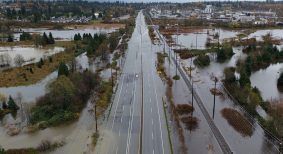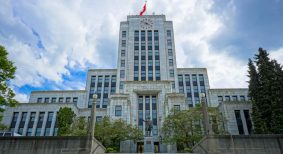The Government of British Columbia is investing $300,000 in a feasibility study focused on high speed rail service connecting Seattle, Portland and Vancouver.
The next phase of the Ultra High Ground Transportation Project, led by the Washington State Department of Transportation in partnership with B.C., Oregon and other regional and local agencies, is intended to address roles, responsibilities and future funding requirements for the project and development of a regional public outreach and engagement strategy.
The study will also explore opportunities to integrate high-speed rail into regional transportation and land-use planning and develop plans for future environmental review process, engineering and design requirements.
“Improving transportation connectivity throughout the Pacific Northwest is an important part of our work to build a stronger, more sustainable future for people on both sides of our border,” said B.C. Premier John Horgan. “This proposal has the potential to significantly cut transportation time between Seattle and Vancouver – presenting new opportunities for clean economic growth, job creation and tourism throughout the region.”
Previous phases of the study indicated benefits to high-speed rail include stronger trade ties between B.C., Oregon and Washington State, economic activity equaling as much as $355 billion within the region and a reduction of as much as six million tonnes of greenhouse gas in the first 40 years of operations, the release stated, along with $42 billion in estimated construction costs with revenue expected to cover project costs by 2055.
In November 2021, a new MOU between B.C., Washington and Oregon was executed that committed the parties to continue advancing activities that support the program.
Washington state has approved US$4 million in funding to advance the next phase of the study.










